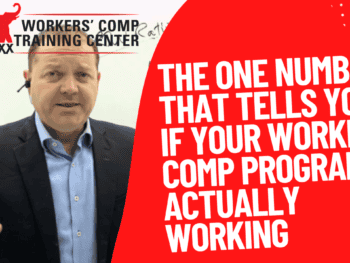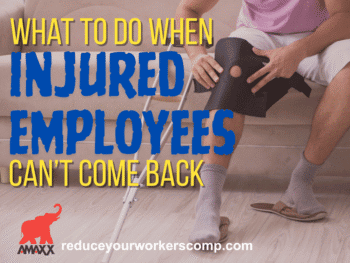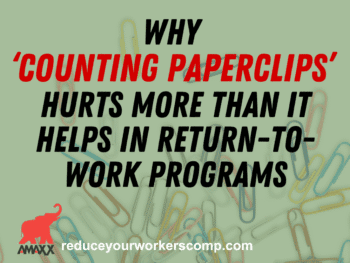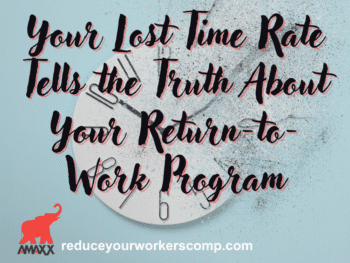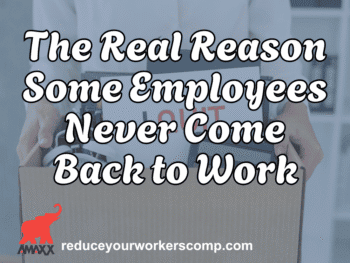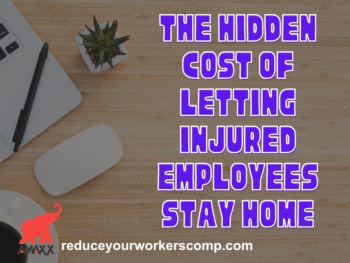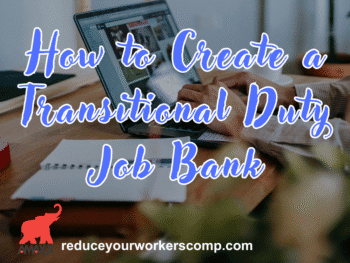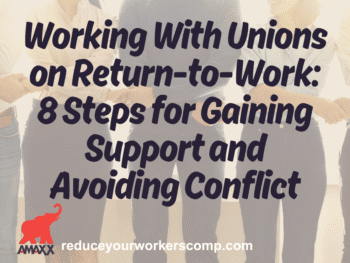Article originally published at: https://www.wcrinet.org/news/blog/recession-fear-of-job-loss-and-return-to-work
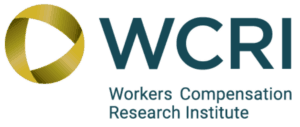
It is important to observe that the current situation is substantially different from a typical recession. The immediate closure of restaurants and bars, canceling all sporting events, eliminating the congregation of even small numbers of people, and other measures have an impact that is more profound and rapid than a typical recession. An injured worker in certain sectors of the economy would have very limited opportunity to return to work during the closures.
Click Link to Access Free PDF Download
“13 Research Studies to Prove Value of Return-to-Work Program & Gain Stakeholder Buy-In”
At the same time, these measures are expected to be of limited duration and the economy may rebound quickly after the restrictions are lifted. Longer-term unemployment may be limited due to the possible quick turnaround, though this observation is tempered by the possibility that the temporary closures will remain permanent for some businesses. So, the results of the WCRI study summarized below, while instructive, hopefully will have limited applicability to the current situation.
The study identifies two different channels of impact of a recession on return to work of those injured at work:
- Direct effect: Workers seeking to return to work might find that job opportunities are scarcer and that return to work is delayed.
- Indirect effect: Workers may fear job loss if they do not return to work, so they may try to hasten that return to work.
The study used WCRI’s Worker Outcomes Surveys prior to the Great Recession to evaluate how variations in the local unemployment rate affect return to work of those injured at work through the two channels identified above. The workers in these surveys were out of work due to injury for more than 7 days, a group more likely to feel the impact of a recession on return to work. The study asked what would be the impact on longer-term unemployment of doubling the unemployment rate from 5 to 10 percent. Longer-term unemployment is defined as not returning to work within 2.5 years after injury.
The study showed:
- Direct effect: Doubling the unemployment rate increases the percentage of injured workers experiencing longer-term unemployment from 14.7 percent to 18.7 percent due to lack of available job opportunities.
- Indirect effect: At the same time, doubling the unemployment rate increased the percentage of workers fearing job loss when injured from 35.5 percent to 51.3 percent. This increased fear of job loss resulted in an increase in the percentage of injured workers avoiding long-term job loss of 1.6 percentage points. This offsets the direct effect of the unemployment rate increase.
The net effect of an increase in the unemployment rate from 5 to 10 percent is to increase longer-term unemployment from 14.7 percent to 17.1 percent, or 16 percent.
The study also considers other scenarios where the impact of a recession on the fear of job loss and resulting worker response is even greater than measured in the data (perhaps because the data were collected prior to the Great Recession). In these scenarios, the probability of longer-term unemployment increases to a lesser extent than the net effect described above.
……….
We will continue to look for ways to help you understand the impact of this ‘new reality’ on claims, worker outcomes, and state workers’ compensation systems. If you need anything (website login, information about research, help finding something, a briefing with one of our staff, etc.), please e-mail us at wcri@wcrinet.org or use the web form at the bottom of every page of our website.
Stay safe,
John Ruser, Ph.D.
President and CEO


